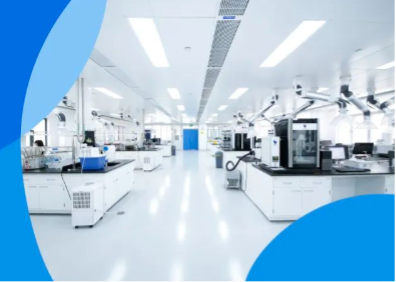Hengrui Pharmaceuticals’ PD-L1 Inhibitor Adebelizumab Combined with HER2 ADC SHR-A1811 Approved for Breast Cancer Clinical Treatment
February 29, 2024
Source: drugdu
 631
631

Recently, Hengrui Pharmaceuticals' subsidiaries, Shanghai Shengdi Pharmaceuticals Co., Ltd. and Suzhou Shengdia Biopharmaceuticals Co., Ltd. received the Notice of Approval for Drug Clinical Trial approved by the State Drug Administration, which authorizes the company to carry out the clinical trial of adelberizumab in combination with SHR-A1811 for the treatment of breast cancer.
According to the data released by the International Agency for Research on Cancer (IARC) of the World Health Organization in 2020, breast cancer has become the world's number one malignant tumor and is the most common malignant tumor in women. Statistics show that in 2020, there were about 2.26 million newly diagnosed cases of female breast cancer and 685,000 deaths worldwide, ranking first in female malignant tumor morbidity and mortality. The incidence and mortality rates of breast cancer worldwide vary according to regional distribution. In China, the 2020 China Cancer data show that the incidence rate of breast cancer accounts for 9.1% (416,400) of the incidence rate of various malignant tumors in the whole body; there are about 117,200 cases of deaths of breast cancer patients. At present, the incidence rate of breast cancer in domestic patients is growing rapidly, and it has been ranked first in the spectrum of female tumor incidence.
Human Epidermal Growth Factor Receptor (HER2)-positive breast cancer accounts for 15% to 20% of all breast cancers, and this type of breast cancer is highly invasive, prone to metastasis, with a low disease-free survival rate and overall survival rate, and a poor prognosis, with about 16-22% of early-stage breast cancer patients recurring, and up to 50% of the HER2-positive advanced breast cancer patients will develop brain metastasis, survival rate is significantly reduced, and the median overall survival time (OS) of recurrent or metastatic breast cancer is only 2~3 years. Triple-negative (HER2-negative, hormone receptor-negative) breast cancer accounts for approximately 15% of all breast tumors, and this type of breast cancer has a high risk of distant recurrence and metastasis within 3 to 5 years of initial diagnosis, with a median OS of approximately 1 year.
For advanced breast cancer after standard treatment, although existing treatments have achieved some efficacy, primary or acquired resistance to anti-HER2 therapy occurs in 22-25% of patients with metastatic breast cancer over time, so exploring novel targeted combination therapies may provide more choices for a wide range of tumor patients.
SHR-A1811 for injection is a HER2-targeted antibody-drug coupler independently developed by Hengrui Pharmaceuticals, which can induce apoptosis by binding to and endocytosing with HER2-expressing tumor cells and releasing toxins through protease shearing in tumor cell lysosomes, thereby inducing cell cycle arrest. advanced solid tumors with HER2 expression or mutation, advanced gastric cancer or gastroesophageal adenocarcinoma, advanced colorectal cancer, advanced non-small cell lung cancer, metastatic breast cancer, and postoperative adjuvant therapy for early breast cancer.
Adebelizumab is a humanized anti-PD-L1 monoclonal antibody independently developed by Hengrui Pharmaceuticals, which can block the PD-1/PD-L1 pathway leading to tumor immune tolerance by specifically binding to the PD-L1 molecule, and reactivate the anti-tumor activity of the immune system, so as to achieve the purpose of treating tumors. Adebelizumab injection (trade name: Ariel®) has been approved for marketing in March 2023, and the approved indication is for the first-line treatment of patients with extensive-stage small cell lung cancer in combination with carboplatin and etoposide. The product has been included in the special drug reimbursement catalog of "Huiminbao" in Beijing, Shanghai, Chengdu and other places. A number of clinical studies on Adebelizumab Injection are underway to evaluate its anti-tumor effects in various solid tumors, including non-small cell lung cancer, small cell lung cancer, esophageal cancer and hepatocellular carcinoma.
Research on the synergistic mechanism of HER2 ADC combined with immunotherapy has shown [6] that HER2 receptor-targeted therapies and immunotherapy have complex cross-talk mechanisms, such as anti-HER2 can promote CD8+ T-cells infiltration into tumor tissues, and γ-interferon secretion by CD8+ T-cells can enhance the cell proliferation inhibitory effect of anti-HER2, and at the same time γ-interferon can also upregulate PD-L1 expression. PD-L1 expression, etc. Therefore, SHR-A1811 combined with adebenosumab may bring new clinical benefits to patients with advanced breast cancer.
https://mp.weixin.qq.com/s/w_Ln-M-MXlc8houubFEs6g
By editorRead more on
- Phase III Clinical Trial of Recombinant Staphylococcus Aureus Vaccine Progressing Normality January 21, 2026
- Its drug marketing application for injectable iza-bren has been accepted January 21, 2026
- Kain Technology withdrew a drug registration application, resulting in a profit reduction of 111 million yuan in 2025 January 21, 2026
- Received Notice of Approval for Drug Clinical Trial January 21, 2026
- Breaking news! AstraZeneca to be delisted from Nasdaq. January 21, 2026
your submission has already been received.
OK
Subscribe
Please enter a valid Email address!
Submit
The most relevant industry news & insight will be sent to you every two weeks.



